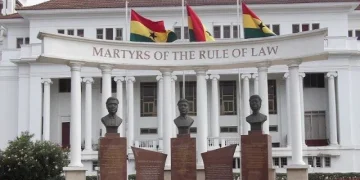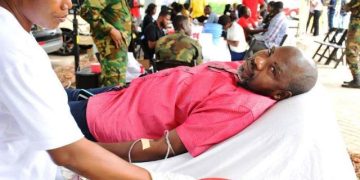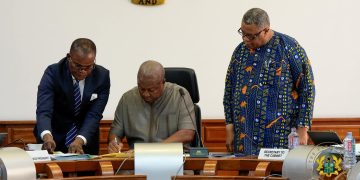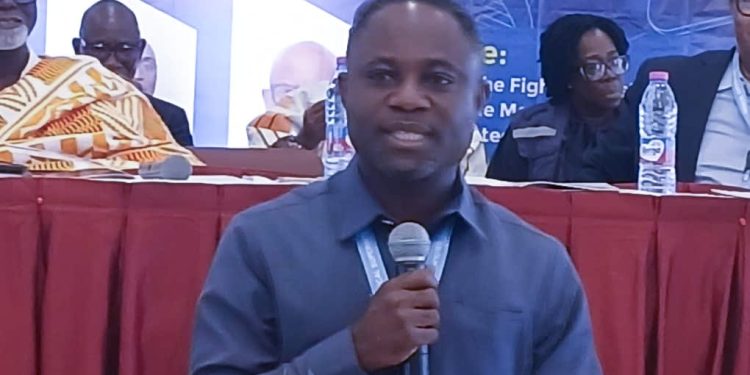Health Minister, Kwabena Mintah Akandoh, has sensationally claimed that the recent shutdown of the National Health Insurance Scheme’s (NHIS) digital platform which has disrupted healthcare delivery nationwide was the result of blackmail by a private company contracted to manage the system.
Speaking at the 2nd Annual Scientific Conference of the Medical Superintendents Group in Abetifi-Kwahu on Tuesday, October 14, the Minister alleged that the company, which was engaged in 2019 to develop and host the Laboratory and Information Management System (LIMS), deliberately switched off sections of the platform to pressure the Ministry after it began probing financial irregularities in the contract.
According to Mr. Akandoh, the $100 million contract was meant to connect about 950 health facilities nationwide, but despite $70 million already paid, only 450 facilities have been linked so far.
“To tell you the truth, this process was awarded in 2019. About $70 million has been paid, and only 450 facilities have been connected. The contract clearly stated that as you build, it becomes the property of the state. It’s not proper for an individual to host patients’ data in this country,” he stressed.
The Minister claimed that his insistence on enforcing state ownership of the system and protecting patients’ data angered some parties, prompting deliberate sabotage.
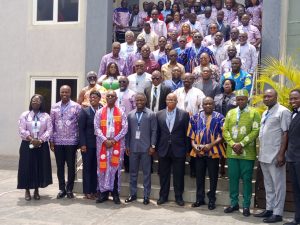
“If I begin to insist on that, I’m the bad one. So somebody must switch it off and on to blackmail, so that it will appear the Minister is not performing. But I will insist on what is right,” he declared.
The shutdown has forced hospitals nationwide to temporarily revert to the “cash-and-carry” system, leaving patients with valid NHIS cards unable to access insured services or compelled to pay for treatment upfront.
Mr. Akandoh assured that efforts are underway to restore the digital system while investigations into the alleged irregularities continue.
“There is a lot I can tell you, but I will not go into all the details now,” he added, hinting that firm action would be taken once the investigations are concluded.
Meanwhile, the ongoing Medical Superintendents’ Conference, themed “Leading the Fight Against NCDs: The Role of Medical Superintendents in Integrated Care,” has gathered hospital heads from across the country to discuss healthcare challenges, particularly gaps in managing non-communicable diseases (NCDs).
Outgoing President of the Medical Superintendents’ Group, Dr. Kamarudeen Korku Hussein, highlighted persistent deficiencies in the health sector, including the lack of essential equipment for emergency cardiac interventions.
“It will shock you to know that essential equipment for cardiac emergencies are unavailable in many facilities. Yet, when standards are not met, the medical superintendent is the first to be asked to step aside, even though the authorities are aware of these deficiencies,” Dr. Hussein lamented.
The conference is expected to produce strategic recommendations to strengthen integrated healthcare delivery and address systemic inefficiencies across the country.


